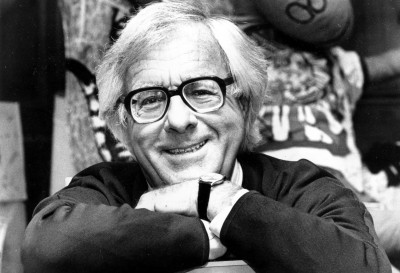
You must stay drunk on writing so reality cannot destroy you.
– Ray Bradbury
Both writers and non-writers are well aware that writing is excruciatingly difficult. As Red Smith (and maybe Hemingway) put it, writing is simple, you just sit down at your typewriter and bleed. But if you’re doing it right, creative writing should also be deliciously, deliriously fun. If you’re not having a blast, you’re not doing it right.
Having a blast means you feel a great sense of freedom propelling you forward in your writing. You feel the rocket thrusters underneath you powering you to somewhere new. (I’ve been reading Ray Bradbury on writing, so his world view is imposing itself). It means you’re fully present and fully yourself in your writing, not trying to be something you think others want out of you, not farting around with some misbegotten exercise in triangulation. It means the writing itself – story, character, mood, detail, description, pace, rhythm, word play, poetry – matters more than thinking of what this or that potential reader might be expecting or desiring.
Creative writing means having the courage and seriousness of purpose to launch yourself in new directions. Longtime newspaper writers are often worn down by a little voice in their head forever scolding, “You can’t say that! You can’t do that!.” This voice is an echo of a certain type of copy editor who believes that squeezing the fun and life out of writing is what the job is about.
The creative writer should crash through those type of mental barriers and charge on past. “You can’t do that!” intones the scold-voice in your head. “Oh yes I can!” you cry, and write on.
The work of cleaning up and tweaking a first draft, then doing a second edit and a third and a fourth and a fifth – that’s all going to be tedious and exhausting enough, full of spin cycles of self-loathing and (brief) mania, rinse, repeat, rinse, repeat. Before you tunnel down into the mines where the real work of writing gets done you might as well fire off some bottle rockets and make them pop and fill up the sky of your imagination.
As part of my determined effort to read a book a week in 2016, I’ve been having fun with Alec Wilkinson’s lovely My Mentor: A Young Man’s Friendship With William Maxwell. I spent a summer working at the New Yorker, helping Roger Angell pull together his collection Game Time: A Baseball Companion, and as much as I try to tamp down my fascination with New Yorker history, I’m a sucker for tales of the days of Harold Ross and Katharine White (Roger’s mother). There was something dour and dutiful about the approach to writing at the magazine at times, as Wilkinson recounts.
“The New Yorker, when I arrived in 1980, had a house philosophy that writing was arduous and draining and next thing to impossible, which was an oppressive atmosphere for a young man,” he writes. “The place seemed a peerage of gloomy old men. Once at a party I heard a woman say to Maxwell, ‘Oh, you’re a writer. what a terrible, lonely life,’ and he brought her up short by saying, ‘There’s nothing I love to do more.’ For me the remark was liberating, and I have felt ever since that writing, even at its mot difficult, is a privilege. He believed that while working on a piece of writing, a writer should hold nothing back. Everything you have is never more than enough for the purpose at hand.”
The challenge lies in opening up a creative space around you conducive to a feeling of boundary-busting freedom. This is harder if you’re checking your social media updates every few minutes, or even using Google to check quotes or facts. It’s also harder for people who have spent years on newspaper staffs, chained to a sense of decorum that rules out the bold or playful or simply weird.
But in the end, whether you’re nineteen and giving writing a try for the first time or you’ve been writing for publication for more decades than you’d like to count, why not listen for the music and try to cast yourself wildly out to the far reaches of what your tickled imagination can summon? Why not go for it? Why not have fun? Why not dance beneath the diamond sky with one hand waving free?
– Steve Kettmann
Want to receive Steve’s blog on writers and writing every week by email? Sign up below.

